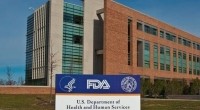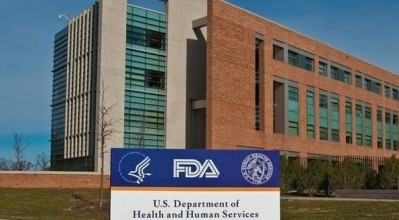FDA’s new advisory list receives mixed reactions from industry

The FDA described in a press announcement yesterday that its new Dietary Ingredient Advisory List is a tool to quickly alert the public when it becomes aware of ingredients that “appear to be unlawfully marketed in dietary supplements.”
Penned by deputy commissioner Frank Yiannas of FDA’s Food Policy and Response, the announcement assured the public that the FDA is working on strengthening the regulation of dietary supplements “by modernizing our regulatory framework to meet the demands of this growing industry.”
The new advisory list will be updated on a regular basis, following a preliminary FDA assessment indicating the ingredient “may not lawfully be in dietary supplements.” (Read the full list HERE)
Reasons for not passing the agency’s preliminary assessments include:
- The ingredient appears to be excluded from use in a dietary supplement;
- The ingredient does not appear to be a dietary ingredient and does not appear to be either an approved food additive or generally recognized as safe for use;
- And/or the ingredient appears to be subject to the requirement for pre-market notification, but the requirement has not been satisfied.
Legal experts have their reservations
If done right, a list like this can quickly alert the public to potentially harmful ingredients, said Ivan Wasserman, an attorney specializing in FDA law at the firm Amin Talati Upadye.
“Also, to avoid being put ‘on the list’ it could encourage industry to do even more to ensure that ingredients are safe, lawful dietary ingredients,” he told us. “I would not be surprised if we see a rise in NDI Notifications as a result of this.”
Though the FDA has long sent out warning letters and consumer alerts on specific illegal ingredients that have made its way into products masquerading as supplements, the advisory list format is “very new,” Wasserman said, and exactly how useful it will be to consumers, and how fair it will be to industry, remains to be seen.
Related News
Critic says FDA’s slow enforcement makes ‘DSHEA 2.0’ a side issue
16-Apr-2019 By Hank Schultz
Industry critic Dr Pieter Cohen, MD, said FDA's enforcement is overly deliberate, making any discussion about revisions to DSHEA more or less moot.
“[It] will depend on how FDA decides to include an ingredient on the list,” he added.
FDA’s text accompanying the list makes clear that an ingredient’s inclusion does not automatically mean the ingredient poses a safety concern, but even with the agency’s use of inconclusive, non-advisory wording such as “do not appear to be lawful ingredients” and “consumers may wish not to purchase,” Wasserman argued that consumers and the industry will see this as a definitive black list of ingredients to avoid.
“Of course, if an ingredient on the list is in fact problematic, then mission accomplished. However, if in fact it is safe and lawful, then not only can the ingredient suffer irreparable reputational harm, but companies could find themselves defending meritless lawsuits and consumers could be harmed by switching to less safe or efficacious ingredients,” he said.
Increased demand for what is ‘forbidden’
An advisory list may backfire, opined Marc Ullman, another FDA expert of counsel at the firm Rivkin Radler.
“You’re dealing in a very weird market…especially for the kind of substances we’re looking at [on the list],” he told us. “You’re dealing with consumers who’s concern is ‘These products may not be available, I need to buy more.”
It reminded Ullman about gamma-butryolactone (or GBL) in the bodybuilding space. “It was sold as a supplement for recovery to help you ease the pain and sleep better. So when FDA got onto this and started pulling the products—the black market price went insane,” he said.
The list is in theory a good idea, he admitted, but without real enforcement such as seizure, injunction, and criminal prosecution of companies that market products with these substances, Ullman said he has serious reservations about what it is going to accomplish.
"How useful [FDA's Advisory List] will be to consumers, and how fair it will be to industry, certainly remains to be seen."
Ivan Wasserman, Managing Partner, Amin Talati Upadhye
“FDA, working with a US attorney’s office to bring cases in these instances, doesn’t even need to prove intent to violate the law if they charge them a misdemeanor,” he said.
“The Food and Drug act is a strict liability statute for misdemeanors, so it’s not a gigantic project. All FDA has to do is prove that the company marketed the product and they can convict them of a misdemeanor. That would get people’s attention.”
Trade groups: One applauds, one thinks list is ‘a bit rushed’
The Council for Responsible Nutrition (CRN), an industry trade group, applauded the FDA’s efforts to modernize its approach to consumer safety by finding creative solutions to exert greater regulatory enforcement in the face of limited resources, said its interim senior vice president of scientific and regulatory affairs Andrew Shao in an email.
The list is a less piecemeal, more well-coordinated version of the warning letters and consumer alerts FDA has done in the past, Shao added.
“If there are products out there that are no-nos, what are they, are they unapproved food additives or are they drugs? Two, what’s the agency doing about it?”
Daniel Fabricant, PhD, President and CEO, The Natural Products Association
In an official statement from the trade group, CRN said it is eager to collaborate with the FDA as it unveils initiatives and hopes that the latest list “serves as a clear warning to bad actors in the fringes of our industry—the regulators are coming for you if you attempt to skirt the law.”
The Natural Products Association (NPA), another trade group, was less rosy about the advisory list. Its president and CEO, Daniel Fabricant, told us that NPA looks forward to seeing the results of this measure and for sharing feedback, but described the Advisory List as "fundamentally a problem."
“If there are products out there that are no-nos, what are they, are they unapproved food additives or are they drugs? Two, what’s the agency doing about it?” he said.
Just publishing a list risks more decisions being made at state level or at the plaintiff’s bar. “If the FDA decides to not take a case against someone, they’re basically saying any state, any plaintiff’s attorney is free to do that. That’s a little troubling,” Fabricant added.
State level legal action can prompt a patchwork of laws across the nation. He wants to see more seizures and injunctions coming from FDA’s part against companies that break the rule instead.
“If they’re saying they’re [just doing a list] because of resources, then wait a minute, states have more resources than the FDA? I don’t think that’s an accurate depiction,” he said.
“And down the road, if something becomes an approved food additive, how does one get off the list? There are a lot of details that seem a little bit rushed.”










